Local Leaders Support LEOBOR Reform, Oppose Unfunded Mandates at State House Press Conference
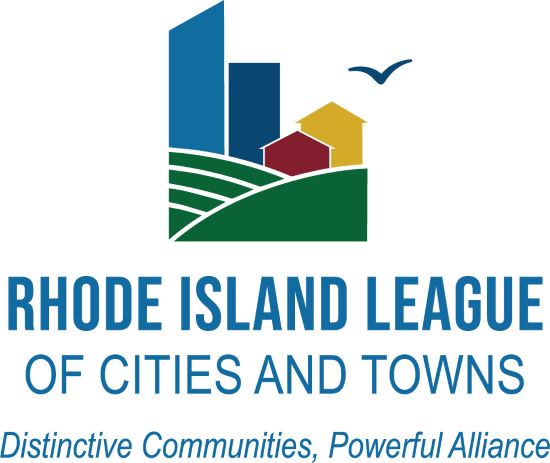
Highlight Negative Impacts of Unfunded Mandates, Costs to Property Taxpayers
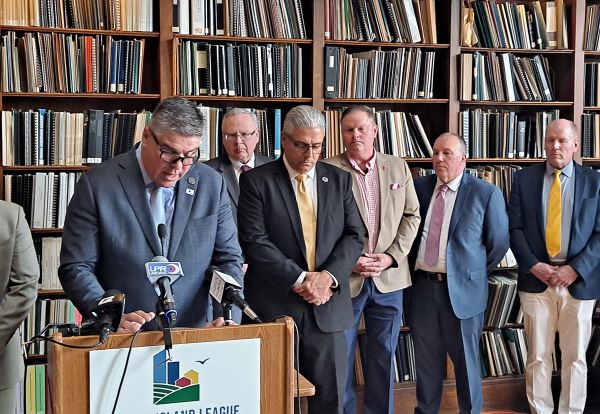
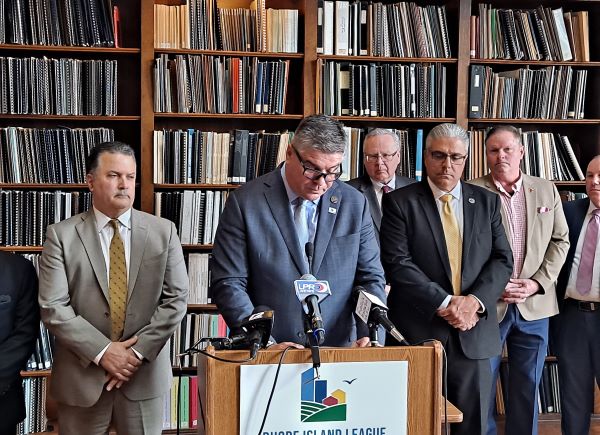
PROVIDENCE – Municipal leaders joined forces at the State House today to highlight the Rhode Island League of Cities & Towns’ priorities for the remainder of the 2024 session of the General Assembly.
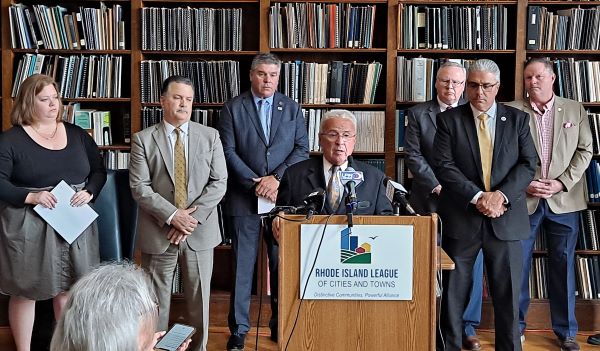
Mayor Charles A. Lombardi of North Providence
“The League of Cities and Towns is eager to work with the Assembly to address important issues and share the true impacts of legislation on the people who live in each community and pay taxes there,” said North Providence Mayor and League President Charles Lombardi. “We are committed to working together to achieve our mutual goals of protecting taxpayers, supporting businesses and operating with fiscal responsibility.”
Mayor Lombardi said the League supported much needed reforms to the Law Enforcement Officers Bill of Rights (LEOBOR) but had serious concerns about other legislation that would create unfunded mandates for communities and costs for taxpayers.
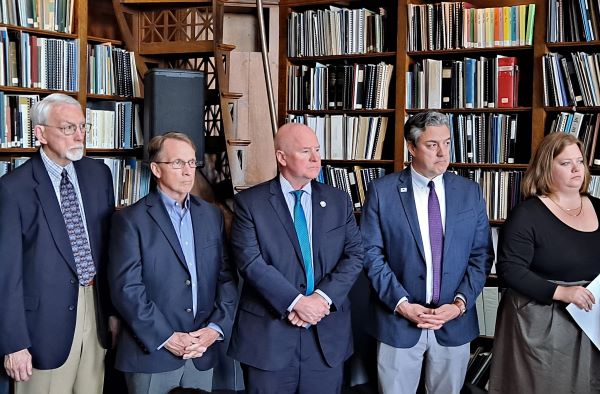
“These are top priorities for the League in the closing weeks of the legislative session,” said Ernie Almonte, Executive Director of the R.I. League of Cities and Towns.
Law Enforcement Officers Bill of Rights
The League encourages the General Assembly to prioritize meaningful reforms to the Law Officers Bill of Rights, as it has for many years. Specifically, the League supports changes to the law that improve transparency and address serious flaws in the current system, with the effect of increasing trust in professional police officers.
“The overwhelming majority of our police officers in the State of Rhode Island are decent, honorable & professional, and we are grateful for their service,” said Mayor Lombardi. “However, when there is an instance where the law is broken or core policies are violated, there must be meaningful consequences, as there are for every other municipal employee or member of the public.”
Unfunded Mandates and Added Costs for Taxpayers
Mayor Lombardi expressed concerns about legislation in the current session that would negatively affect the ability of municipal leaders to effectively manage their work force, while at the same time adding significant costs for taxpayers.
Personnel costs are the largest component of local budgets – representing 70% of expenditures across cities, towns and schools,” said Mayor Lombardi. “Municipal officials need greater flexibility in managing the municipal workforce to meet the needs of their community, encourage innovation, improve efficiency and control property tax growth.
“Municipalities do not need additional mandates that increase costs, which a number of bills do as currently written,” he added.
Mayor Lombardi highlighted several bills that would increase mandates and costs for taxpayers.
A bill extending injured-on-duty benefits to police officers and firefighters suffering from diagnosed post-traumatic stress injury (H-7464) is just such a bill, the Mayor said.
“We obviously support the mental health of our public safety employees, but there are significant issues with this version of the bill,” said Lombardi.
To achieve its stated goal, any legislation must prioritize treatment and services over cash payouts.
“Treatment is what will save our firefighters and police officers,” said Lombardi.
In Minnesota, as in other states, treatment options for PTSI typically involve a combination of psychotherapy, medication, and support services. This reflects the reality that it’s important for individuals with PTSI to work with qualified mental health professionals to develop a personalized treatment plan tailored to their specific needs and preferences.
“If the Legislature wants to delve into municipal labor relations, a place it shouldn’t be, we ask that the bill be drafted to reflect best practices (treatment), written clearly, and with protections against potential misuse,” said Mayor Lombardi.
The League has submitted specific suggestions and areas where the current bill should be improved. “Preserving the specificity and integrity of duty-related injury determinations is crucial for maintaining transparency, accountability, and fairness within the context of compensation programs,” according to testimony from the League.
Presumption of heart disease, stroke and hypertension for police officers (H-7461)
The League has consistently written, testified, and shared with legislators in conversation that the current injured on duty system (IOD) needs to be reformed before new benefits are considered, Almonte said.
In 2019, the General Assembly made significant improvements to IOD for state public safety officials, recognizing that it needed to be fixed. Unfortunately, cities and towns were not included in those much-needed reforms.
“We asking the Assembly to address this issue today before passing any additional legislation that puts additional pressure on retirement systems,” he added.
Fiscal Impact of Labor/Management Bills & Unfunded Mandates on Local Taxpayers
We would like to remind the legislature that every unfunded mandate they add has a direct impact on municipal taxpayers, who are their constituents,” said Mayor Lombardi. “To pay for these added costs mandated by the General Assembly year after year services either need to be cut or taxes need to be raised to pay for the mandates.”
“Here are some important questions to ask,” he added. “Can seniors afford this? Can working families afford this? Can new residents looking to take a job afford this? Increasingly, the answer is ‘No.’”
Legislative Scorecard
A number of speakers said that decisions made at the General Assembly have a direct fiscal impact on communities and taxpayers.
“We can no longer ask residents to support retirement system liabilities, education, municipal services and shoulder the burden of unfunded mandates,” said Almonte, highlighting that the League will be issuing a public scorecard in August that will track legislators’ key votes in the General Assembly on legislation affecting cities and towns.
“We look forward to educating the public about the important work, and decisions, that their elected officials make,” he added.